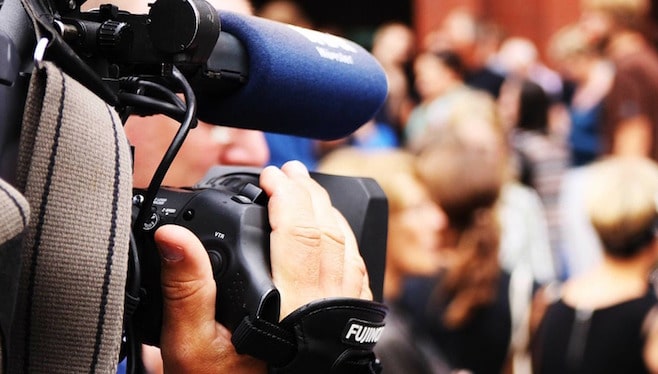Everyone knows that successful media relations programs often result in interviews. But when it comes to relating with the media, preparation and planning can sometimes be overlooked or underemphasized due to tight timelines and other factors.
Media interviews are not a walk in the park. The reputation of a company or the future of a newly launched product hinges upon the flow and outcome of these conversations. These are high stakes situations! Regardless of how experienced the spokesperson might be, or how basic the premise of the discussion seems initially, engaging with the media in person, on television, via phone and even over email shouldn’t be taken lightly.
Check out these five key tactics every interviewee should keep in mind when preparing for a media interview:
Identify the punch line
Regardless of whether the interview was scheduled due to an inbound media request or a carefully planned media outreach campaign, spokespeople should never engage without first establishing and understanding the unique purpose of each particular media conversation. Many things can impact the way a subject is approached from both sides; the focus of the publication, the journalist’s audience, etc. If the audience demographic or story angle doesn’t make sense, reconsider. If the interview is a good fit, be sure to understand how the “so what” of the conversation can change slightly or drastically based on the publication and journalist in order to craft messaging that supports your organization’s overall goals.
Message. Message. Message.
At a very fundamental level, the purpose of an interview is for the journalist to ask questions and the spokesperson to provide answers. Spokespeople who approach media conversations with this mindset are surrendering all of the control and influence that come along with an interview. Prior to the discussion, take time to establish two or three key messages that align with your company’s overall goal. Make sure that these key messages are clear, newsworthy and relevant to the journalist’s audience. Weave these messages into your responses whenever appropriate to ensure that your organization’s viewpoints and messaging are present throughout.
Know how to back it up
Anybody can say anything. And in today’s media environment, fact checking, corroboration and multiple sources aren’t exactly the norm. Spokespeople should be prepared with several statistics and solid supporting points to back up claims and key messages during a media interview. Being able to reference a reputable study, a big-name customer testimonial, or surprising data point will go along way to make you stand out to the interviewer and the audience as credible and genuine.
Bridge over troubled water
Believe it or not, most journalists do not engage with spokespeople to give them a free-for-all platform to spout corporate key messages. When used properly, “bridging” is an interview tactic that can allow the spokesperson to navigate away from sensitive or off-message questions while delivering a key point. Bridging is usually applied when the conversation becomes focused on something negative, sensitive or irrelevant to your organization. In certain circumstances this is less likely to happen, but you should always be prepared to acknowledge the question, inject an appropriate segue, and deliver a key message.
Shoot for a second date
Good spokespeople have a way of securing repeat performances with journalists. The media values quality, compelling and reliable experts for interviews. As an interview subject – whether it be in person, on television, over the phone or via email – the more enthusiastic, genuine, knowledgeable and easy to work with you are, the better the final outcome will be and the higher your chances are of being invited back.
There are tons of factors involved preparing for and pulling off a successful media interview – many of which are actually outside of the spokesperson’s control. The 5 tactics above are 100 % under your control every single time. Whether you’re a PR practitioner coaching your clients or a subject matter expert who occasionally engages with the media, focus on these tactics for your next interview.

